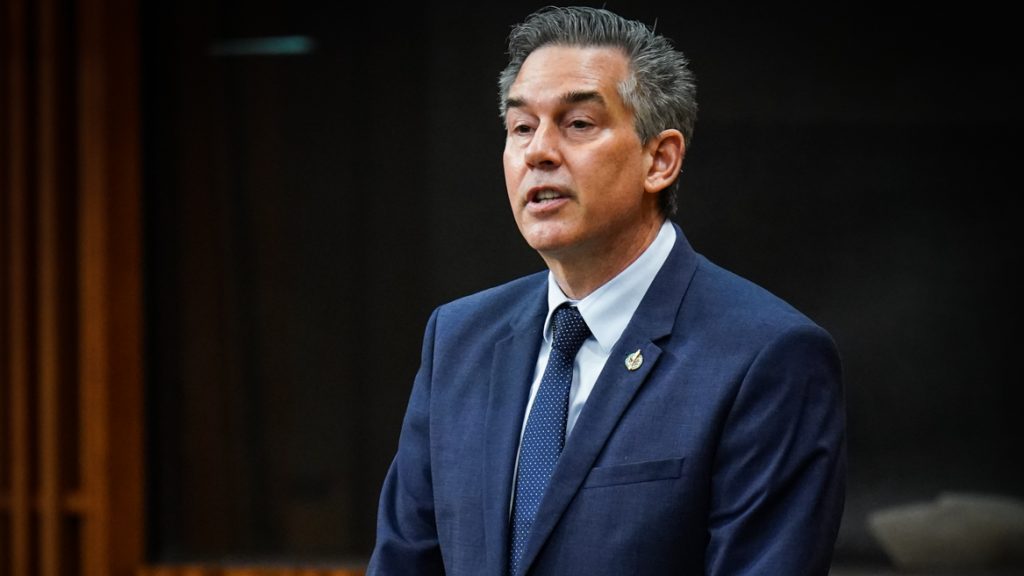Protest at Nestle plant in Aberfoyle
Posted Nov 25, 2018 03:57:03 PM.
This article is more than 5 years old.
In front of the Nestle Bottling Plant in Aberfoyle stood a mass of protesters, calling on Nestle to stop drawing water from the local aquifer.
It was on the basis that water was a human right.
Makasa Looking-Horse and youth from the Six Nation organized the “Putting a Stop to Nestle” protest as part of World Water Week.
Even though the weather was less than ideal — the area had a freezing rain warning — people from Kitchener, Guelph and even Toronto all made the trip to protest alongside members of the Wellington Water Watchers and the Green Party.
Looking-Horse and her group arrived late due to traffic delaying the bus, but she was happy with the turnout and many more were already protesting in front of the plant.
From the parking lot at the Puslinch Community Centre, she led the march towards the plant. Everyone followed, carrying their homemade signs and chanting, “Water is life! Water is sacred!”
Looking-Horse hopes that the Nestle company would actually listen when they consult with Indigenous councils. She was sure they were paying attention.
“I think it is sending a good message and they are paying attention because their security guards are lined up behind where we are,” she said, “So they knew that this was happening today and they know our intentions.”
She said that it shouldn't just be Indigenous people speaking up for water and protecting it, though it did hold greater meaning to her.
“As my duty as a Mohawk woman, the teachings I grown up with was always to protect our water and to have that connection to water because I'm a woman and that's our babies first environment,” Looking-Horse said.
She calls on everyone to rethink their water habits, especially when it came to bottled water.
To her, there was something wrong behind the concept of selling water.
Dawn Martin Hill is Looking-Horse's mother, and coincidentaly the first Indigenous woman to earn a PHD in Anthropolgy. She says she was proud of her daughter and what she had accomplished that day.
Hill said it was wrong for Nestle to take water that rightfully belongs to Six Nations.
“There's Anishinabe, Haudenosaunee people — we don't take the reserve boundaries that were laid out by colonial governments as our only space, but this is our space. So they're taking water from Six Nations,” Hill said, “What they take here is depleting our resource.”
According to her, Nestle has consulted with Indigenous Council, who in turn said no to them.
Many reserves in Canada still don't have access to clean water and have to boil it to be safe to drink. To her, it was unfair their people had to suffer while they made money off of water.
“So it's about inequity — it's a racial inequity towards Indegenoius people, so that's a problem. And the other problem is that they're destroying and polluting what good water there is left,” Hill said.
She did note the Six Nations is more fortunate than other reserves when it comes to water.
The protest eventually started marching towards security guards stationed in black SUVs. The guards' backed their vehicles up while the the protestors stopped before them and continued their speeches. It ended peacefully and people parted ways, though they briefly blocked three transport trucks from entering the plant.
The trucks eventually got in and protestors parted ways.
Looking-Horse said that there would be further action in the future against Nestle.
“I hope they take my message and the community's message seriously, to stop taking it,” Looking-Horse said.










